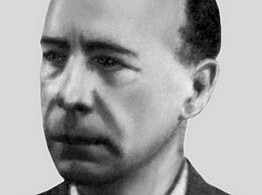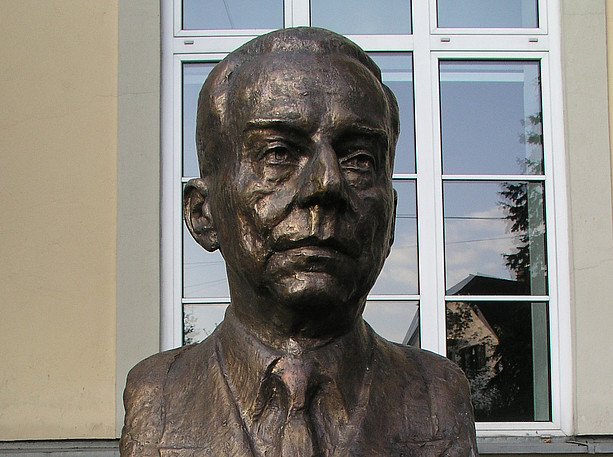
©Institutsarchiv
Dževad Karahasan (1953-2023) is one of the most important contemporary European authors. From 1996 to 2003, he was the city writer of Graz, which was to become his adopted home. As a literary and theater scholar at the University of Sarajevo, he was associated with the Institute of Slavic Studies for many years as a visiting professor, lecturer and, most recently, as an academic mentor.

©Sissi Furgler
Erich Prunč (1941-2018) devoted himself intensively to Slovenian linguistics. As a professor of translation studies, he headed the Institute for Theoretical and Applied Translation Studies at the University of Graz for many years. His influence, particularly on topics such as translation culture and ethics, was groundbreaking. He was an honorary senator of the University of Ljubljana.

©Institutsarchiv
The Lviv-born Byzantinist Volodymyr Zalozec'kyj-Sas (1896-1959, also: Wladimir Sas-Zaloziecky) headed the Graz Chair of Art History from 1949 until his death, where he extended his research into early Christian and Byzantine (architectural) art to the Balkan countries.

©Institutsarchiv
Adisa Bašić, geboren 1979 in Sarajevo, Dichterin und Literaturwissenschaftlerin, schloss am Institut für Slawistik mit der Dissertation A Comedic Approach to Erotic Love in a Selection of South Slavic Lyric Poetry (2019) ihr Doktoratsstudium an der Universität Graz ab. Sie ist Trägerin des Literaturpreises Bank Austria Literaris (2012) für den besten Lyrikband Mittel- und Südosteuropas. Sie arbeitet Dozentin an der Universität Sarajevo, wo sie Poesie und kreatives Schreiben lehrt.

©Institutsarchiv
After studying languages at the University of Graz (Serbo-Croatian, Ancient Greek, Latin), Burgenland-Croatian Martin Zsivkovits (born 1955) played a key role in founding the bilingual federal grammar school in Oberwart for the Hungarian and Burgenland-Croatian ethnic groups, which he headed up as director until his retirement in 2019. For over 30 years, he taught an introductory course in Burgenland-Croatian language and culture at the Slavic Studies department in Graz.

©Institutsarchiv
The Yugoslav writer and diplomat Ivo Andrić (1892-1975) studied Slavic studies and history in Zagreb, Vienna, Krakow and Graz, where he received his doctorate in 1924. In 1961, he was awarded the Nobel Prize for Literature "for the epic power with which he shapes motifs and destinies from the history of his country". A memorial to him was erected in front of the Wall Center, where the Slavic Studies Department in Graz is located, in 2008.
Begin of page section:
Additional information:
End of this page section. Go to overview of page sections
End of this page section. Go to overview of page sections











